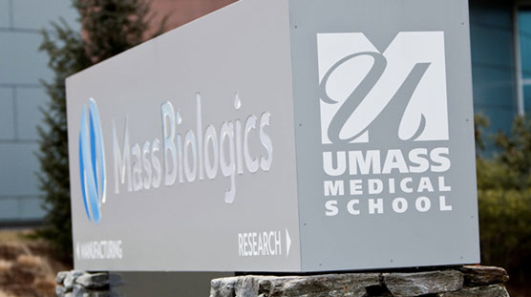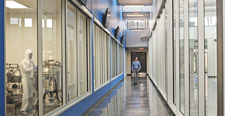Voyager Therapeutics and MassBiologics To Collaborate In Treatments For MS, ALS, Parkinson’s, And Friedreichs Ataxia
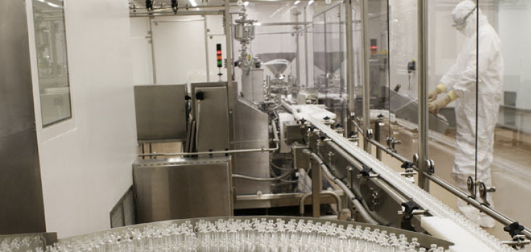
Cambridge, Massachusetts based gene therapy startup, Voyager Therapeutics, has announced it will strategically collaborate with of the University of Massachusetts Medical School (UMMS)’s MassBiologics unit to develop scalable process methods using current good manufacturing practices (cGMP) for manufacture of recombinant adeno-associated viral (rAAV) vector treatments for a range of potentially life-changing treatments for central nervous system (CNS) disorders including MS, ALS, Parkinson’s, And Friedreichs Ataxia.
Under the cooperative arrangement, scientists from both Voyager and MassBiologics will pool their efforts and resources toward combining a Voyager-developed rAAV production technology platform with MassBiologics’ manufacturing expertise and infrastructure in order to establish Voyager’s proprietary third-generation baculovirus/Sf9 process in pr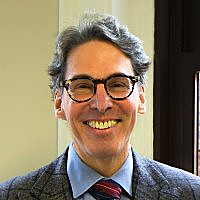 oduction of rAAV vectors. This process, invented by adjunct professor in the Department of Microbiology and Physiological Systems at UMass Medical School and Voyager’s Vice President of Production Robert Kotin, Ph.D., has been shown capable of highly-efficient production of high quality rAAV vector on a commercial scale.
oduction of rAAV vectors. This process, invented by adjunct professor in the Department of Microbiology and Physiological Systems at UMass Medical School and Voyager’s Vice President of Production Robert Kotin, Ph.D., has been shown capable of highly-efficient production of high quality rAAV vector on a commercial scale.
Joint activities of the collaboration will be concentrated at MassBiologics’ new SouthCoast Vector Manufacturing Center in Fall River, Massachusetts.
“We look forward to collaborating with MassBiologics at its new Vector Manufacturing Center in Fall River, a facility that aims to 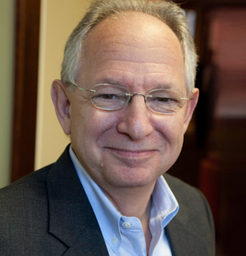 manufacture a new generation of medicines,” says Steven Paul, M.D., who was recently appointed permanent CEO of Voyager Therapeutics, succeeding Interim CEO Mark Levin, who will continue as Chairman of Voyager’s Board of Directors. “High quality, scalable production is vital for the long-term success of Voyager’s rAAV therapeutic programs for patients, and it is a privilege to work with the leading biologics experts at MassBiologics.”
manufacture a new generation of medicines,” says Steven Paul, M.D., who was recently appointed permanent CEO of Voyager Therapeutics, succeeding Interim CEO Mark Levin, who will continue as Chairman of Voyager’s Board of Directors. “High quality, scalable production is vital for the long-term success of Voyager’s rAAV therapeutic programs for patients, and it is a privilege to work with the leading biologics experts at MassBiologics.”
Leading rAAV production and regulatory experts from Voyager participating in the collaboration include Dr. Kotin as Vice President of Production, Robert Pietrusko, Pharm.D., as Senior Vice President of Regulatory Affairs, David Dismuke, Ph.D. as Director of Vector Production, Maria Scheel who is Associate Director of Production, and Sylvain Cecchini, Ph.D. and Tamas Virag, Ph.D. in Process Development
“This unique collaboration enables Voyager to work closely with MassBiologics personnel, reducing the time required to transfer methods, set-up manufacturing, and release product for clinical use, says Dr. Kotin in a release.
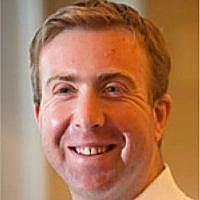 “MassBiologics’ clear commitment to viral vector manufacturing and their new state-of-the-art facility make it a natural partner for Voyager as we scale up our baculovirus/ Sf9 based rAAV vector manufacturing platform for clinical use,” says James McLaughlin, Head of Operations at Voyager Therapeutics. “The new collaboration builds upon an existing long-term strategic partnership between UMMSs Gene Therapy Center and Voyager around rAAV research and development.”
“MassBiologics’ clear commitment to viral vector manufacturing and their new state-of-the-art facility make it a natural partner for Voyager as we scale up our baculovirus/ Sf9 based rAAV vector manufacturing platform for clinical use,” says James McLaughlin, Head of Operations at Voyager Therapeutics. “The new collaboration builds upon an existing long-term strategic partnership between UMMSs Gene Therapy Center and Voyager around rAAV research and development.”
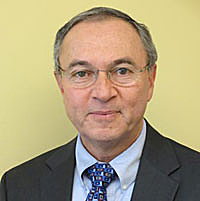 “Viral vectors like rAAV offer us a new way to think about delivering life-saving and life- changing medicines to people,” comments Mark S. Klempner, M.D., Executive Vice Chancellor for MassBiologics. “We can deliver a gene that goes into the body so that an individuals own cells produce the medicine. MassBiologics is proud to have the only contract manufacturing facility in Massachusetts with the capacity to manufacture at scale viral vectors to the quality standards required for human use.”
“Viral vectors like rAAV offer us a new way to think about delivering life-saving and life- changing medicines to people,” comments Mark S. Klempner, M.D., Executive Vice Chancellor for MassBiologics. “We can deliver a gene that goes into the body so that an individuals own cells produce the medicine. MassBiologics is proud to have the only contract manufacturing facility in Massachusetts with the capacity to manufacture at scale viral vectors to the quality standards required for human use.”
Boston-based MassBiologics of the University of Massachusetts Medical School is the only publicly owned, non-profit FDA-licensed manufacturer of vaccines and other biologic products in the United States in the United States as a non-profit, FDA-licensed vaccine manufacturer. Having conducted applied research, development and production of biologic products for more than 100 years, MassBiologics has long been at the forefront of biologic medicines development, and its expertise in manufacture of FDA-licensed vaccines and immunoglobulins, along with its experience in the development of new biologic products furnishes an infrastructure to move these products forward.
The MassBiologics laboratory was established in 1894 by the Commonwealth of Massachusetts state Board of Health with a mandate to develop therapeutic a product engine to address unmet medical needs and to improve public health through applied research, development and production of biologic products, stewardship of MassBiologics was transferred from the state Department of Public Health to the University of Massachusetts Medical School In 1997 MassBiologics’ focus is on development and manufacture of biological therapeutics, both as part of its public health mission and as a contract manufacturer at its 300,000 sq. ft. Mattapan production facility and at its newly opened 30,000 sq. ft. SouthCoast Vector Manufacturing Center.
Voyager Therapeutics was launched in April, 2014 with $45 million in Series A venture capital financing from leading life sciences investor Third Rock Ventures, its mission to develop life-changing gene therapies for fatal and debilitating central nervous system (CNS) diseases such as Multiple Sclerosis (MS), Amyotropic Lateral Sclerosis (ALS), Parkinson’s Disease, and Friedreichs Ataxia (FA) The company’s founders include both scientific research and clinical therapist leaders in the fields of adeno-associated virus (AAV) gene therapy, expressed RNA interference and neuroscience, and Voyager’s management team brings to the table a wealth of deep expertise and a track record of building exceptional life science companies. The company has developed a product engine with which it hopes to transform treatment of a wide range of diseases through multiple clinical and preclinical product programs.
Currently in Voyager’s product pipeline are programs for treating Parkinson’s, a monogenic form of ALS and FA, all of which are in dire need of new and more effective therapies. Depending on the disease being addressed, Voyager’s gene therapies use either gene replacement or gene knockdown techniques with the objective to address the particular disease’s underlying biology by significantly increasing or decreasing production of relevant proteins at targeted central nervous system sites in the body.
One candidate includes VY-AADC01 for Parkinson’s disease, currently in an ongoing Phase 1b study with our Voyager’s collaborators at the University of California, San Francisco, as well as preclinical programs VY-SOD101 for a monogenic form of ALS and VY-FXN01 for Friedreichs ataxia, which is less well-known, but is actually the most common hereditary ataxia, with an estimated 8,000 patients living with the disease in the United States and Europe (roughly one in 50,000 people in the US). According to the Friedreichs Ataxia Research Alliance, FA patients carry gene mutations that limit the production of the vital protein frataxin, which is known to be an important agent that functions in cell mitochondria. Frataxin helps to transport iron to cells and is involved with formation of the iron-sulfur clusters necessary in mitochondrial function, and consequently in energy production, so frataxin deficiency is associated with a variety of debilitating symptoms and complications, including muscle weakness, impaired vision, hearing and speech, aggressive scoliosis, diabetes, heart disease and difficulty breathing. Because there are currently no treatments for FA, patients are mainly monitored for symptom management. However, by delivering a functional version of the FXN gene to targeted cells in the CNS, Voyager’s goal is to increase levels of frataxin and thereby slow the disease’s progression.
Voyager is building a state-of-the-art process development laboratory onsite at our Cambridge headquarters, and is committed to advancing adeno-associated virus (AAV) gene therapy through selection, design and manufacture of high-quality vectors and through innovation and investment in vector optimization and engineering, dosing techniques, process development and production. The corporate goal is to address CNS diseases’ underlying biology by expressing the precisely optimum amount of protein in the right cell at the right time or by knocking down a specific gene to decrease levels of a disease-causing protein.
Along with a broad strategic collaboration with the University of Massachusetts Medical School (UMMS), Voyager has also entered into licensing and other agreements with UMMS, the University of California at San Francisco, and with Stanford University in PAlo Alto, California to access relevant technology and data.
For more information, visit
https://www.voyagertherapeutics.com
Sources:
Voyager Therapeutics
MassBiologics
The Friedreichs Ataxia Research Alliance
Image Credits:
Voyager Therapeutics
MassBiologics
Third Rock Ventures




